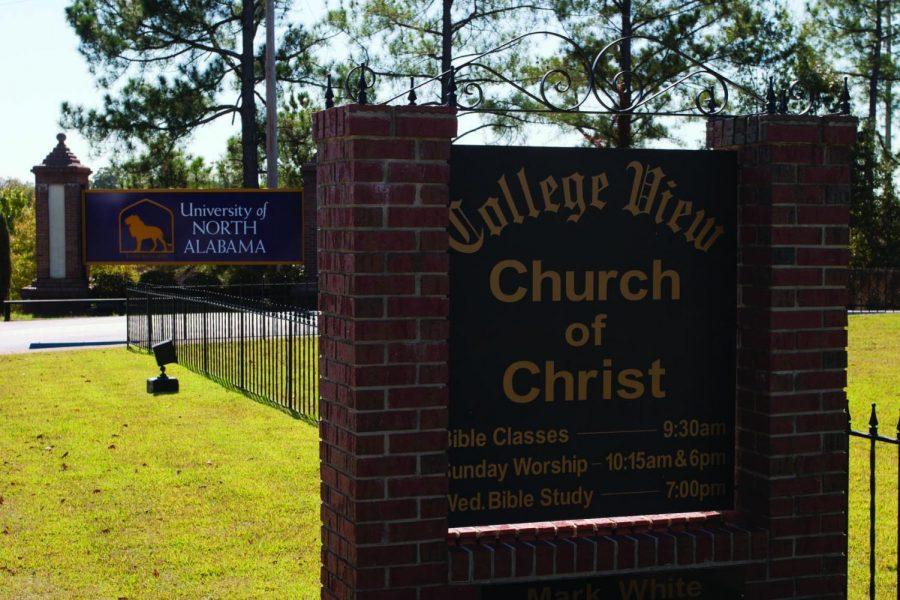Losing religion: Does college life shake students’ faith?
November 3, 2011
UNA psychology professor Dr. Larry Bates, whose research often focuses on the psychology of religion, said that roughly 93 percent of Americans are engaged in a faith, and 80 percent of them will disengage from that faith at some point.
For UNA political science major W.J. McCormack, college is a time when students should question any and all beliefs they hold-which is what he did while learning about the Bible stories he was teaching as a youth pastor when he was 17. McCormack questioned his Southern Baptist upbringing and, through a self-described process of critical thinking, eventually became an atheist.
McCormack believes that everyone, regardless of what beliefs they hold, has a responsibility to question their faith.
“When you critically think, that’s how you make decisions,” he said.
In many cases, college is the first time students are exposed to critical thinking, and is a time when students define who they are, according to McCormack. He said critical thinking explains the multitude of students who change, augment or leave behind their faiths in college.
But Bates attributes students’ changes of faith to a different source.
“Almost no one will break free of any faith without a group to join,” he said. “If you come to college and befriend an atheist who hasn’t yet been struck down by God, it can cause you to question your previously held beliefs.”
According to Bates, friend groups and new experiences account for the many students who change their beliefs in college. But he doesn’t believe college is the only reason people change.
“There’s a natural ebb and flow to life,” he said. “Different life stages, like parenthood, can cause these changes. Kids will cause anyone to seek divine intervention.”
Some UNA students have had a different experience than McCormack.
“My beliefs have strengthened since I got to college,” said UNA junior public relations major Kat Hardiman.
Hardiman was Catholic as a freshman, but now she is heavily involved with The Well, a Baptist campus organization.
She said that her new college friends contributed heavily to her change in faith.
“You kind of become the people you hang around,” she said. “I had people I was open with and understand what I’m going through. My friends gave me accountability in my faith.”
UNA junior French major Dillon Green also found himself at The Well after entering college unsure about his faith.
He said he tried to apply logic and critical thinking to his faith, but his friends helped him to understand that God thinks with different logic.
“Sometimes I feel like it’s tough for students to believe in God because they have to believe in something they can’t see,” he said.
For Green, the college environment strengthened his Christian beliefs.
“College is an environment of temptation,” he said. “It strengthened my faith because it forced me to question my faith.”
And, according to Dr. Bates, what Green experienced is perfectly normal. He said beliefs are like a house, and any new experience has to be able to fit into that structure.
If students who experience new things are able to reconcile those things with their beliefs, then their faith is strengthened, according to Dr. Bates. If they can’t, then it changes.
McCormack believes that all faiths have a place as long as the individual believers have responsibly examined their beliefs.
“Open-mindedness doesn’t mean acceptance of everything,” he said. “It means examining your beliefs and understanding what is fact and what is faith. You should never be too comfortable with your beliefs. If you’re comfortable, you’re dead.”












